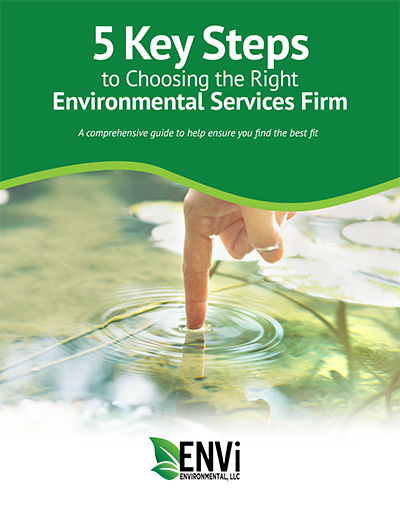What You Need to Know About Stormwater Management Ordinances
As progress pushes business forward, companies continue to expand operations and develop new properties. These developments require careful planning for all aspects of the enterprise. A key piece not to be overlooked is adherence to stormwater management ordinances.
Why stormwater management ordinances?
Since stormwater discharges can affect flooding, erosion, and water quality, proper stormwater management is essential. This has made the creation of stormwater management ordinances a necessity. They guide and enforce the processes required to maintain a healthy environment.
Stormwater Management Ordinance Components
To successfully comply with these essential ordinances, businesses must first be familiar with what they are and how they work. According to the Environmental Protection Agency (EPA), stormwater management ordinances feature four types of components.
Legal Authority and Context
A stormwater management ordinance may be governed by local or state authorities. Which body oversees the ordinance determines with whom a business must consult when encountering permitting and compliance issues. The authority of the ordinance may also stem from other legislation or ordinances, such as those that govern subdivisions, flood control, or zoning.
The context of the stormwater management ordinance establishes the parameters of the regulation. It defines why the ordinance is necessary, its goal, and to what it applies. Grandfather clauses are common, so it’s important to know the details of this context to determine precisely how the ordinance affects a company’s operations.
Technical Basis
The technical side of the stormwater management ordinance encompasses the methods and measurements that must be used to adhere to the regulation. For an ordinance to be valid, it must not require any activities that aren’t feasible for those who must adhere to it.
A company must determine what methods are appropriate to fulfill the requirements of the stormwater management ordinance. Tasks typically include: analysis to predict events, establishment of appropriate structures to manage stormwater, and sampling to evaluate the effectiveness of the chosen methods.
Administration
Of course, any stormwater management ordinance must have administration processes in place to review plans and permits, complete inspections, monitor adherence, and collect fees. The funding for this administration may come from a variety of sources. For example, the local government may fund them, or stormwater utilities may be established that support these tasks.
A company must understand how a stormwater management ordinance is administered in order to approach permitting, inspections, and adherence in the proper manner.
Enforcement
An ordinance should clearly state what actions are considered a violation of the law. It should also indicate the consequences of non-compliance. The enforcement of stormwater management ordinances is typically accomplished through civil penalties rather than criminal. Harsh fees and suspension of activities are common enforcement tactics.
Companies should be aware of the regulation’s parameters in order to avoid violation as well as understand what consequences are possible if it fails to adhere to the ordinance.
How to Comply with Stormwater Management Ordinances
Clearly, businesses must process a significant amount of information regarding stormwater management ordinances. With the plethora of concerns on their plates, it can be nearly impossible to stay on top of every task. Fortunately, businesses can partner with a stormwater management company to handle their stormwater concerns. Among other tasks, this firm provides:
- SWPP: The stormwater management company develops a custom Storm Water Pollution Prevention Plan (SWPP). This ensures operations adhere to local requirements and guide the ongoing success of stormwater management. Tasks to develop this plan include sampling, record keeping, mapping, and pollution prevention procedures – all of which are administered by the stormwater management company.
- Permitting: A company that specializes in stormwater management will prepare the necessary permits and complete any sampling required to comply with ordinances.
- Ongoing monitoring program: Once a business is compliant with local stormwater management ordinances, the management company can provide ongoing monitoring to help maintain their compliance status. They can manage the permitting and inspection schedule and maintain reporting requirements regarding sampling and analysis.
What ENVi Environmental Knows About Stormwater Management Ordinances
ENVi Environmental is your trusted partner to handle each of these aspects of stormwater management ordinances. Our full-service offerings include:
- Seamless Solutions: ENVi 360™ Solution covers the full spectrum of services to meet the needs of complex projects from start to finish.
- Local Experience: We apply extensive knowledge of local ordinance requirements to every project. Our team brings more than three decades of local experience to the table.
- High Approval Rates: ENVi Environmental applies consistent, detailed methods that result in high approval rates for projects we submit to regulatory agencies. Our in-depth understanding of industry standards has resulted in a near-perfect record of successful approvals.
Minimize your environmental risk and maximize your investment
by partnering with the professionals at ENVi Environmental.
Contact our team today to find out more about our stormwater management services and how they can benefit your business.

